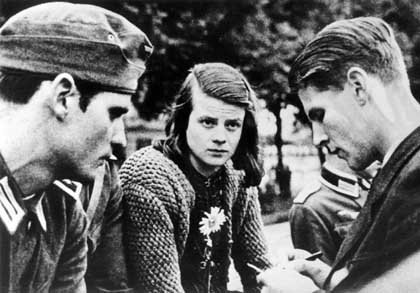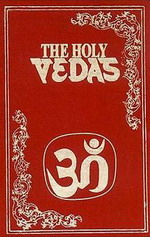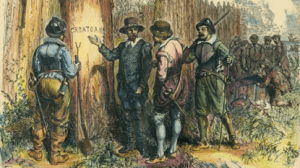Have you ever thought, why didn’t anyone try to stop Adolf Hitler? Were any Germans ever against him? Was the German community aware of the harm that Hitler was causing to innocent people? Indeed, there were. But who were the people behind these courageous acts? A group of college student attempted to stop Hitler and his heinous acts against Jews and his betrayal of the German people. In 1942, the group known as the White Rose arose in the streets of Munich, Germany. It was a student resistance movement that was created to expose Hitler to all of Germany. Their acts were believed to portray the true meaning of Christianity. The group made leaflets that contained information about the Nazis and their injustices. The letters were mailed to random addresses all over Germany. These students were willing to do whatever was needed in order to follow their moral duty and stop Hitler and his army.1
Sophie Scholl will always be remembered as one of the key individuals in the White Rose movement. She was born in Forchtenberg, Germany in 1921. She grew up in a religious and very political home. Her father was the mayor of the small town and her mother was a deaconess at their local church.2 Her parents raised her family to live an anti-Nazi life. Sophie was the second of three children. Both Hans and Sophie, like most other young Germans, were a part of the Hitler youth movement. There, individuals would be taught Nazi morals and train for battle. While in the program, Sophie and Hans were exposed to the injustices that were done by the Nazi government.3 Hans, her older brother, and his friends were responsible for starting the resistance movement. They named it after a white rose because it portrayed “purity and innocence.”4

Hans was attending the University of Munich when he started the movement. Along with friends that were also opposed to Hitler and the Nazi regime, they began writing leaflets that denounced the inhumanity of Hitler and his army. They described the Nazis as gangsters and violent criminals.5 After Sophie graduated High School, she followed her brother’s footsteps and attended the University of Munich, where she studied biology and philosophy.6
Sophie was an excellent writer, which played a crucial role in not only writing leaflets but distributing them as well. Not only did the group write leaflets, they spread their beliefs by spraying quotes on twenty-nine different public buildings. Some of the sayings were, “Down with Hitler” and the word “Freedom” on the sides of the entrance of the University of Munich.7 On one very significant leaflet, they exposed the horrendous acts, in which Hitler was responsible for the mass-murder of Jewish people. The group described this as, “the most terrible crime against human dignity, a crime not to be compared to any similar one in the history of mankind.” 8

One night, Sophie had a dream that she and her brother were arrested by the Gestapo. Little did she know that her dream would one day become a reality.
“Our people stand ready to rebel against the national socialist enslavement of Europe in a fervent breakthrough of freedom and honor.” This was the last line of the last leaflet that Hans and his sister would distribute on February 18, 1943.9 While everyone was in class, Hans and Sophie distributed the leaflets around the University. When they were done, Sophie went back and threw a stack of leaflets down a balcony. She was not able to flee the scene fast enough, as a Janitor saw her throw the leaflets down a balcony and went after her and the man beside her, Hans. The janitor stopped the individuals and reported the incident. Later, they were detained and taken to Gestapo Headquarters, where they were questioned. At the time, Hans still had a hand-written letter in his pocket, which incriminated his friend, Christoph Probst. The letter was potentially going to be the group’s next leaflet. Christoph was brought in for questioning. The individuals were detained for four days. They were questioned, and they in turn became victims of the brutality of the Nazi machine. While detained, the Gestapo broke one of Sophie’s legs. The three individuals were found guilty of “high treason,” and four days later were beheaded. The Gestapo did not stop, and they were on the lookout for other people who were involved in the group. It was not until five months after their execution when more members were detained and punished. One of the individuals was a Professor who had helped the group write some of the leaflets; he was later executed as well.10
The members of the White Rose stood up for their beliefs and condemned the horror of the Nazis, including Sophie, who was willing to do whatever was needed to inform others and stop Hitler from committing injustices, even if it meant losing her life in the process of it. They exposed the Nazis to all of Germany and fought to stop Hitler. Sophie Scholl along with her friends will go down in history for their braveness and courage to stop the Nazi regime.
- Annette Dumbach and Jud Newborn, Sophie Scholl and the White Rose (Oxford: Oneworld Publications), 5. ↵
- Women in World History: A Biographical Encyclopedia, 2002, s.v. “Sophie Scholl,” by Anne Commire. ↵
- John M. Lewis, “Germany and the White Rose,” New Hampshire Bar Journal 53, No. 2 (2012): 56-57. ↵
- Russel Freedman, We Will Not Be Silent: The White Rose Student Movement That Defied Adolf Hitler (New York: Clarion Books, 7 ↵
- John M. Lewis, “Germany and the White Rose,” New Hampshire Bar Journal 53, No. 2 (2012): 56-57. ↵
- Russel Freedman, We Will Not Be Silent: The White Rose Student Movement That Defied Adolf Hitler (New York: Clarion Books, 24. ↵
- Simon Henderson, “The White Rose and the definition of ‘resistance: Simon Henderson explains the significance of Hans and Sophie Scholl in the history of Nazi Germany,” History Review No. 53 (2005): 42. ↵
- Simon Henderson, “The White Rose and the definition of ‘resistance: Simon Henderson explains the significance of Hans and Sophie Scholl in the history of Nazi Germany,” History Review No. 53 (2005): 42. ↵
- Simon Henderson, “The White Rose and the definition of ‘resistance: Simon Henderson explains the significance of Hans and Sophie Scholl in the history of Nazi Germany,” History Review No. 53 (2005): 42. ↵
- Simon Henderson, “The White Rose and the definition of ‘resistance: Simon Henderson explains the significance of Hans and Sophie Scholl in the history of Nazi Germany,” History Review No. 53 (2005): 42. ↵



67 comments
Victoria Salazar
Wow, I had never heard of the White Rose Movement before. Although I knew that not all German supported Hitler, I just assumed that there weren’t any mass movements against him because most Germans were out for revenge after the repercussions of World War 1. I am glad that I read about these brave writers and their efforts to make Germany aware of the inhumanity of the Nazis.
Christopher Hohman
Nice article. It is nice to know that there was something of a small resistance movement in Nazi Germany at the time. It is good that some Germans did not believe all that they had been told and that they understood that what the Germans were doing was truly a crime against humanity. A story like this is not often told. The men and women who defied Hitler and the Nazis are true heroes for sticking up for what is right. It is so bad that they lost their lives in the process, but their sacrifice was not in vain.
Sebastian Carnero
That was a very important detail about WWII I never gave much thought about. The White Rose was a really brave group that risked many things for no profit. It is incredible how 2 students could maintain their beliefs and values, and oppose to such a powerful regime. I think this part of the war deserves more recognition and attention.
Jabnel Ibarra
When thinking of how the Nazi party overtook Germany it is very common to think that it happened with no opposition. The party did face opposition, as all parties do, and in this specific case they faced fierce opposition through student movements. These movements should be remembered for their acts of bravery in fighting the Nazi party and doing what little they could to inform the public about the horrible acts performed under Hitler’s orders.
Mia Stahl
The Holocaust has always been a point of interest for me. I often ask the question posed at the beginning of this article, “Why didn’t anyone try to stop Hitler?” and think about how massive the injustice was and how a whole country sat by and watched. Even though I have read a lot about The Holocaust I have never heard about The White Rose movement and their extreme work in exposing the Nazi regime. I’m thankful that I came across this article and had an opportuinty to learn even more about something I thought I knew so much about.
Miguel Camarillo-Cohen
Sophie Scholl and the White Rose Student Resistance Movement are heroes. This article starts with a provocative question. Why didn’t anyone stop Hitler? I have on many occasions had this very question. I always wondered how the mass murders and tortures be allowed. Why didn’t anyone stop him? Why didn’t the German people put a stop to the insanity of this monster? I am surprised there a few stories told on the resistance undertaken by these young students will to take on Hitler while others did not. Sophie Scholl, Hans Scholl and others were beheaded for their political activism. These young students fought the Nazis’ hate with their words. Sophie died at 21 and she lived a life of valor. Courage defined these young students. Most resistance movement have been started by the young.
Anthony Robledo
Wow, what a great article! I have currently been jumping all over World War II. I went from learning about stolen art, to a peace treaty that almost happen, and now this. I knew more about this topic than the others, but i had never heard of Sophie Scholl or what she had done. People like her really make me wonder what im doing with my life. Even though Sophie and the White Rose movement didn’t stop Hitler, it is good to here that people tried. Good job on this article!
Natalie Childs
While this article has a heartbreaking end, it is great and inspiring. While I had known that there was resistance within Germany against Hitler, I had not realized that such an important one was composed of college students. Sophie, her brother Hans, and everyone that participated are true heroes and I think more people should know about the bravery that they exhibited bringing to light the horrors of the Nazi regime.
Destiny Flores
I found this article incredibly interesting and insightful. It actually gives me a little hope for humanity because I had no idea that there were German people who were actually opposed to Hitler’s actions. It makes it even more powerful that those people were young college students, it makes the story a little relatable, because despite the consequences I would like to believe that I would have stood up for the Jews too.
Alexandra Cantu
I hadn’t heard the story of Sophie or the Resistance Movement. It’s was an interesting article to read about how the students chose a white rose to represent their purity. They had a lot of courage and bravery to stand up for what they believed in especially for being young adults. This was a well written article I really enjoyed it